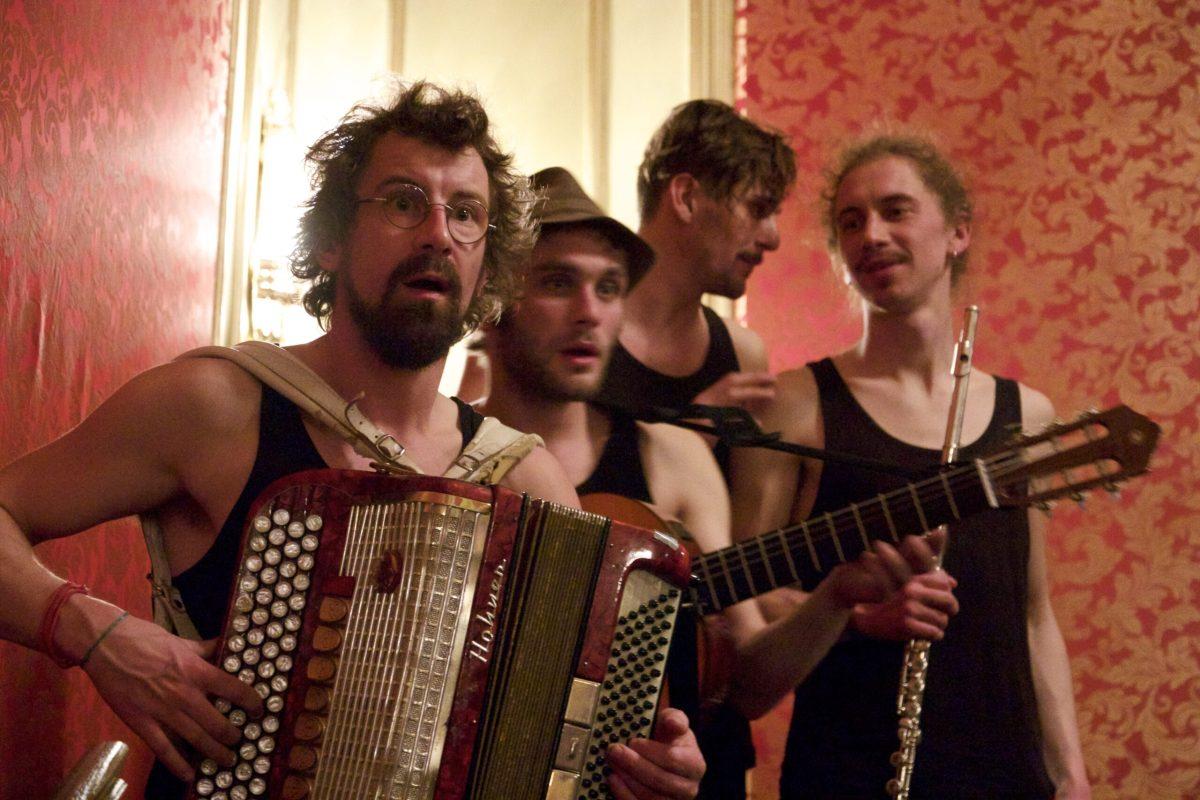When Frederick Douglass High School Principal Dr. Eryca Neville asked math department chair Austin Miller to lead a partnership between True/False Film Fest, Ragtag Cinema and DHS four years ago, Miller was hooked from the start.
Miller became a teacher advocate for True/False through his school’s connection to different educational outreach programs like Camp True/False and the Media Literacy Initiative.
Camp True/False is a program that allows high school students to experience the festival on a deeper level. Campers learn about the history, ethics and different elements used in documentary films. Students who are interested in Camp True/False apply for the camp in the fall. Those who are selected attend meetings throughout December, January and February until the festival. During these sessions, students watch documentaries, talk with film professionals and prepare for the festival.
“Our students learn to talk about, understand, appreciate and analyze media from different perspectives while also growing with each other through exposure to new content and activities centered around film,” Miller said.
Students in Camp True/False select either the journalism, storytelling, visual art, film or music track (film and music are typically the most popular tracks) to foster discussions in the meetings before the festival. However, campers of all tracks have similar schedules during the festival in order to discuss shared experiences. Camp True/False does not end at the closing credits of the final documentary; some former campers still keep in contact with their groups and watch films together outside of school.
“They aren’t official film clubs,” Miller said. “But it shows that genuine connections are made with students that extend past the festival.”
Miller has expanded these programs to students and teachers outside of Columbia city limits. This year, Camp True/False has roughly 30 students from Columbia public schools and 40 students from schools across the United States, Miller said.
“Camp True/False has been providing opportunities for our high school generations to meet, discuss and learn about the world around themselves through film,” Miller said. “It’s an amazing experience that I wish all students could enjoy, but Camp True/False keeps expanding to include more and more outreach for our future generations.”
In order to prepare for Camp True/False, Columbia Public Schools, Ragtag Film Society and the Columbia Public Schools Foundation collaborated in 2016 to train teachers how to discuss media literacy in schools through the Media Literacy Initiative. Teachers who apply start in August and meet every month. The initiative provides film suggestions that correlate with CPS curriculum along with potential Skype interviews with the filmmakers and trips to Ragtag Cinema and True/False Film Fest.
“We focus on film but we also discuss elements of radio, podcasts, photography and social media, among others,” Miller said. “These sessions tend to be centered around discussing these forms with students and how to view, analyze, create and explore different forms within our own content areas.”
Both Camp True/False and the Media Literacy Initiative reinforce the festival’s mission, “to champion independent film and media art and to serve film communities both locally and globally,” according to the festival’s website.
Applications for Camp True/False are online and distributed in Columbia public high schools in early fall, and applications for the Media Literacy Initiative are due in August.
_Edited by Brooke Collier | [email protected]_








